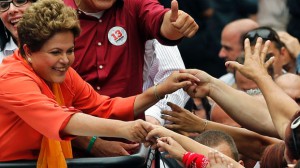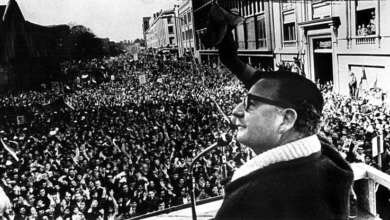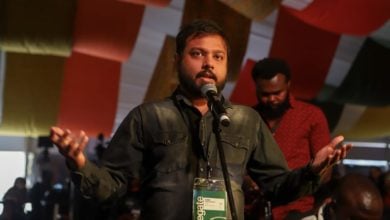Sunday, Oct. 5, the presidential elections take place in Brazil, and the stakes are high, with current president Dilma Rousseff of the Workers Party being challenged by Marina Silva of the Brazilian Socialist Party. The issue is whether the Brazilian elites will be able to turn back the social progress achieved by the Brazilian masses, in their backing of Silva, who despite her pro-environment past, is cultivating a close relationship with powerful capitalists. Manuel Yepe is a noted Cuban journalist who writes frequently on many international issues.
A CubaNews translation. Edited by Walter Lippmann.
Polls were predicting the closest race for the presidency of Brazil in the history of the South American giant after the era of its military dictatorships.
There were several candidates and it was not expected that in the first round of the electoral event, on October 5, there would be one candidate with enough votes to decide the issue on the first round. It seemed there would have to be a second round on October 26 to decide between the top two candidates chosen in the first round.
It appeared that two women would be the rivals: current President Dilma Rousseff for the Workers Party (WP), and Marina Silva for the Brazilian Socialist Party (BSP).
“The victory of the opposition could mean a kind of break in the present Brazilian foreign policy … because the heart of many officials (in Dilma Rousseff´s administration) is, to put it in one simple word, Bolivarian,” declared former Brazilian president Fernando Henrique Cardoso, when consulted by corporate media about the likely international political orientation of opposition candidate Marina Silva.
Former Senator Silva, 56 years old, was a member of WP until 2009, and has since approached various political formations. She jumped into the current Brazilian presidential campaign last August, as vice presidential candidate on the ticket of socialist Eduardo Campos.
When Campos died in an airplane crash on August 13, the BSP replaced him with Marina Silva who, with an image linked with popular movements during her nearly three decades of militancy in the PT, and projecting herself as a fervently evangelical environmentalist, rose rapidly in the polls and became a threat to Rousseff’s re-election.
Marina spoke of a shift in the foreign policy of Brazil, emphasizing that in her coming to power it could revitalize diplomatic and economic ties with the United States and Europe, with whom she would promote the signing of new trade agreements.
As a radical environmentalist subordinated to corporate groups, Marina responded ambiguously, using ethical and religious arguments, to questions about her plans regarding hydrocarbons.
But, to the surprise of a right which presumed it had the campaign under control and felt close to winning the election, Dilma gave her campaign a shift to the left. She said, without euphemisms, that Marina Silva represented the bankers and powerful entrepreneurs seeking to regain a control of the state that they have not had during the WP administrations.
Several leaders of popular movements, including Amazon farmers, denounced Marina’s shift to positions different from those she had when she was a WP militant.
Immediately, voting preference polls began to reverse, and soon Dilma stood as favorite to win in the first round, or if necessary in a second.
Dilma Rousseff, succeded Luiz Inacio Lula da Silva, of working-class origins and leader of the Workers Party (WP), who concluded his two-term mandate as president with as much popularity as he had when he took the post the first time. The support of the charismatic Lula was a very important factor in the first election of Dilma and has been this time as well.
An estimated 40 million Brazilians who have come out poverty during the three terms of the WP and a high number of the poor who have risen to the middle class, contribute to the popular support enjoyed by Rousseff. Her inclusive social policies have benefited more than 50 million Brazilians in terms of health, nutrition, literacy andhousing. They have also consolidated the social base in rural areas and even in the large cities.
On economic issues, the people applauded the firmness with which Dilma defends the role of economic activity regulator undertaken by the state.
Brazil is the sixth largest economy in the world, the fifth largest geographically, and has a population of over 200 million. Along with Russia, India, China and South Africa it makes up BRICS, a group of developing countries with economic weight and political qualities, setting a balance to the sole superpower and the former European colonial powers.
The peoples of Latin America and the popular and progressive governments in the region strongly support the re-election of Dilma Rousseff because it means the consolidation of an independent and sovereign Brazil, without interference from the IMF and the World Bank, and without subordination to the policies of the United States and the European Union. It is essential to the process of political cooperation and integration developed through UNASUR, MERCOSUR and CELAC. Further, it is key to the proliferation of progressive leftist projects in the region, the Latin American and Caribbean integration, and continental solidarity support for the governments of Cuba, Venezuela, Bolivia, Ecuador and Uruguay.
October 1, 2014.







